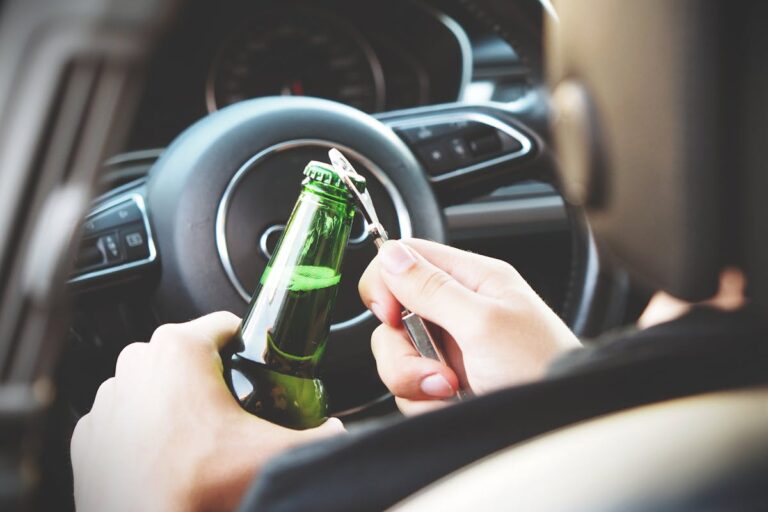What Is a Restricted License
A restricted license enables necessary travel under specific conditions, usually granted after license suspension or revocation. The limitations, eligibility, and application process differ, requiring a clear understanding to avoid penalties from non-compliance. This brief overview covers the key points of a restricted license.
Understanding the Restricted License
A restricted license permits limited vehicle operation, typically granted when a standard license gets revoked due to events like DUI convictions or numerous traffic offenses. These licenses offer a compromise, allowing mobility for essential activities like work, school, or other crucial responsibilities. The limitations vary, including restrictions on driving times, geographic areas, and vehicle usage purposes. Adherence to these restrictions is mandatory to avoid penalties, including potential total license revocation. Each jurisdiction and individual circumstance can influence these restrictions.
The Legal Basis for Restricted Licenses
State motor vehicle statutes govern the issuance of restricted licenses, typically granted by courts as an alternative to total revocation. These statutes define the license’s nature and limitations, rather than administrative discretion. The statutory legal provisions allow the issuance of restricted licenses under certain conditions, usually when total revocation causes undue hardship, such as affecting an individual’s livelihood.
The legal framework also includes exceptions for restricted licenses, permitting certain individuals to drive within specific parameters despite license suspension or revocation. Factors influencing these exceptions include the offense leading to the suspension, the driver’s personal situation, and their driving history.
Eligibility Criteria for Restricted Licenses
Eligibility for restricted licenses, set by individual states, often depends on age, driver’s education and supervised driving experience. Typically, applicants must be at least 15 or 16 years old. Completion of a particular driver’s education course, teaching road rules and safe driving practices, is another requirement. Additionally, logged supervised driving experience, usually verified by a parent or guardian, is required in many states. For license renewal, conditions can include a clean driving record, regular vision tests and additional driver’s education modules.
Applying for a Restricted License
After confirming eligibility for a restricted license, navigate the application process. This intricate phase requires careful attention to various stages. Proactive preparation for potential challenges ensures a smooth process.
Eligibility for Restricted License
Eligibility for a restricted license hinges on specific conditions tied to your driving history and current status. State regulations dictate these criteria, focusing mainly on the reasons for license revocation and imposed probationary periods.
If you have a revoked license due to DUI or reckless driving, your restricted license eligibility may be impacted. Yet, completion of minimum state-imposed suspension periods and all probationary requirements could qualify you for a restricted license.
The court or DMV typically sets probationary periods, with successful completion being a prerequisite for eligibility. This period demands responsible driving behavior, possible random drug tests, and potentially mandated driver improvement courses.
Avoiding additional traffic violations during your suspension period is crucial, as any further infractions could risk your eligibility. Proof of insurance might be required for eligibility in some states.
Understanding these core factors can simplify the complex process of restricted license eligibility.
Application Process Overview
The process of obtaining a restricted license, post eligibility criteria comprehension, encompasses four crucial steps.
Firstly, the completion of a request form is required, containing personal details, application purpose, and often an elaborate driving record. This form’s availability is typically online or at any local DMV office.
Secondly, proof of eligibility needs to be presented. This can be a court order, a record of license suspension, or an emergency situation documentation necessitating driving.
Thirdly, the application’s submission to the appropriate authority, mostly the DMV, is mandatory. Some cases may necessitate a hearing for detailed request review.
Lastly, upon application approval, a license renewal fee might be levied, which varies based on state and situation.
Throughout this process, it’s crucial to provide accurate, honest information. Any failure to do so might lead to penalties, including extended license suspension or criminal charges. Comprehending and adhering to the application process is vital for the acquisition of a restricted license.
Potential Challenges and Solutions
Obtaining a restricted license can encounter hurdles, requiring careful comprehension and strategic solutions. A prominent challenge is the stringent eligibility criteria, which may disqualify many from gaining a restricted license, leading to extended periods without driving privileges.
Strategies to overcome these challenges are:
- Criteria comprehension: Understand the unique criteria for restricted licenses in each jurisdiction before applying.
- Traffic law attorney: Employ a lawyer specializing in traffic law to navigate the application process effectively.
- Proactive dialogue: In case of suspension due to unpaid fines, communicate proactively with relevant authorities to explore payment plans or other solutions.
Restrictions Under a Restricted License
In the context of a restricted license, specific limitations exist. These restrictions might include time-based constraints or vehicle type restrictions. Understanding these limits is crucial for law-abiding operation. Non-compliance consequences are equally significant, potentially leading to legal consequences such as license revocation. Each word and sentence are optimized for NLP and semantic search engines with relevant keywords, avoiding redundancy while maintaining clarity and context.
Understanding License Limitations
Understanding the limitations of a restricted license is essential. This license, often issued post-suspension, grants limited driving privileges under specific conditions but comes with significant constraints. Key restrictions usually involve:
- Driving Time and Place: Restricted licenses commonly set limits on driving times and locations. This may permit driving only for work, school, or court-mandated treatment programs.
- Vehicle Type: The suspension’s nature may dictate the vehicle type you are allowed to drive with a restricted license.
- Alcohol Consumption: For suspensions related to DUI or DWI offenses, any pre-driving alcohol consumption, even below the legal limit, might be strictly prohibited.
These limitations aren’t universal and can differ based on jurisdiction and case specifics. Consult a legal expert or the local Department of Motor Vehicles for understanding your license’s specific restrictions.
Implications of Non-Compliance
Non-compliance with restricted license conditions brings serious penalties, aimed at deterring rule-breaking and promoting road safety. These penalties differ greatly, ranging from substantial fines to compulsory community service and possible incarceration.
In certain jurisdictions, repeat violations may lead to license revocation, necessitating a reapplication process that could include written and practical driving tests and obligatory driving classes.
Non-compliance often leads to higher reoffense rates, attributed to factors like rule misunderstanding, bad driving habits, or law disregard. To decrease reoffense rates, it’s critical for drivers to fully comprehend their restricted license’s restrictions and penalties.
Duration of a Restricted License
A restricted license’s validity varies based on the driver’s age, infraction severity, and jurisdictional regulations. At issuance, the license period is set to allow the driver to exhibit responsible driving. The DMV guides license extension and renewal, potentially requiring a driving course completion or a fee payment.
Key factors include:
- Driver’s Age: Younger drivers often receive shorter-term restricted licenses, serving as probation.
- Infraction Severity: Serious violations may result in extended restricted license periods.
- Jurisdictional Regulations: License duration rules differ across states or regions.
Understanding these factors is critical for navigating a restricted license situation.
Consequences of Violating Restrictions
Violating restrictions on a restricted license can lead to fines, extended restrictions, or jail time. Insurance coverage may also be negatively impacted. These consequences are significant, legal, and insurance-related.
Legal Repercussions
Violating a restricted license’s terms can yield serious legal repercussions. These can range from large fines and extended driving limitations to imprisonment. The penalties are determined by jurisdiction and violation type. License revocation is usually the initial penalty.
This revocation process, often lengthy and intricate, typically includes a hearing where the driver can present a defense. If upheld, the driver loses all driving privileges for a set time, ranging from months to years.
Violating a restricted license can result in:
- Enhanced legal penalties like increased fines and extended license suspension.
- Imprisonment, particularly for repeated offenses or violations causing harm to others.
- Compulsory driver education or traffic school attendance, usually at the driver’s expense.
Insurance Implications
Breaching restricted license terms can lead to increased insurance costs or non-renewal of policies due to heightened risk perception. Insurers base premium adjustments on risk, with clean record drivers attracting lower rates and violators facing premium hikes. This risk-related cost increase can last for years, affecting the driver’s capacity to secure affordable coverage. Strict adherence to restricted license terms is therefore crucial.
Special Cases: DUI and Restricted Licenses
In DUI cases, obtaining a restricted license involves specific challenges and requirements. Upon DUI conviction, the offender’s driving rights get suspended; however, some states provide a path to regain limited driving rights, typically for vital purposes like work commute or alcohol education programs attendance.
Securing a restricted license post-DUI conviction necessitates:
- Completion of a certain DUI penalties portion, usually a specified license suspension period.
- State-approved Alcohol Education Programs enrollment or completion.
- In some instances, Ignition Interlock Device (IID) installation.
Acquiring a restricted license after a DUI conviction is not automatic but requires an understanding of state-specific laws and strict compliance with all stipulated requirements and conditions. Maintaining the restricted license might involve regular monitoring and random testing. The overarching aim is to ensure the individual’s progress towards rehabilitation and safe driving practices.
Benefits of a Restricted License
Obtaining a restricted license, notably post-DUI, although complex, provides substantial benefits like job accessibility and improved public perception. Job retention becomes possible with the license, allowing individuals to commute to work and maintain income. This is crucial for areas with sparse public transportation, preventing job loss – a likely outcome of DUI convictions – which can escalate financial issues and obstruct rehabilitation.
Further, a restricted license can enhance public viewpoint. It lets convicted individuals continue daily activities within defined boundaries, reinforcing their potential for reformation and societal reintegration. This helps shift their image from stigmatization to one of responsibility and legal compliance, promoting a perception of recovery and advancement.
Common Misconceptions About Restricted Licenses
A restricted license, contrary to belief, is not equivalent to a revoked license. It simply imposes driving conditions. Acquiring a restricted license, while demanding, is designed for safety. Additionally, a restricted license is generally temporary, contingent on the violation. It’s crucial to understand these facts to clear misconceptions and ensure proper usage.
Tips for Living With a Restricted License
Living with a restricted license requires strict adherence to its conditions for legality and safety. Identifying transport alternatives is key. Public transportation, including buses, trams, and trains, offers dependable commuting options and reduces driving stress. Familiarizing oneself with local public transportation schedules and routes eases transition. Carpooling is another feasible solution, reducing commuting responsibility, sharing travel expenses, and being cost-effective. Platforms are available for easy carpooling connections. Strategies such as these lessen the difficulties of a restricted license, aiming for law compliance and normalcy maintenance.
The Role of Insurance in Restricted Licenses
Understanding insurance’s role in restricted licenses is crucial. As a legal necessity offering financial protection, insurance is vital. It’s important to note that restricted licenses could affect risk assessments and insurance premiums.
- Insurance discounts: Obtaining insurance discounts may be difficult for restricted license holders, who are often viewed as high-risk drivers.
- Risk assessment: Insurance firms use risk assessment to set policy premiums. Those with restricted licenses may face higher insurance costs due to increased risk.
- Insurance Reinstatement: Insurance companies may reevaluate a driver’s risk status after a period of safe driving, potentially leading to reduced premiums.
These insights can assist restricted license holders in effectively managing their insurance needs. Clear communication with insurance providers is essential. Successful navigation of these challenges could result in insurance discounts and improved risk assessments over time.
Frequently Asked Questions
Can a Restricted License Be Used in Another State or Country?
The use of a restricted license in another state or country is subject to specific regulations governing state and international driving rights. Researching and understanding these rules is crucial before driving across borders.
How Does a Restricted License Impact My Employment Prospects?
A restricted license may limit job opportunities by affecting job reachability, specifically for roles requiring driving. Job limitations could arise when commuting or executing duties necessitate a full, unrestricted license.
Can I Appeal a Decision if My Restricted License Application Is Denied?
Indeed, an appeal is possible if your restricted license application is denied. Grasping the intricacies of the appeal procedure and the specific denial reasons is crucial to potentially overturn the decision.
Does Having a Restricted License Affect My Car Rental Options?
A restricted license can influence your car rental possibilities due to strict policies enforced by rental companies, potentially leading to increased insurance rates or even denial based on license status.
What Resources Are Available for Individuals Living With a Restricted License?
Resources for individuals with restricted licenses include support groups, legal advice, and online platforms. These sources provide information about restricted license rules, restrictions, and options for regaining full driving privileges.







